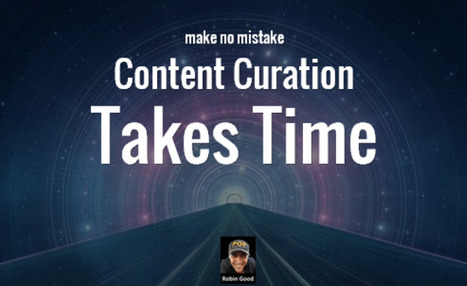Everyday, there are 4 million blog posts, 100,000 news articles and 500,000 hours of video published on the Internet. A wealth of information and knowledge. A wealth of information and knowledge that is lost for most companies, at least for the most part.
Lost?
Step 1: content curation
Not entirely. Thanks to content curation technology, the Web can now be filtered. With content curation tools and platforms such as Scoop.it (among others of course), we can use more or less sophisticated ways to filter this huge amount of content that is published daily to zoom in on what matters to us. Good content curation technology is essential. It saves people a huge amount of time looking for content to share for marketing purposes or information that helps their organization make better decisions. And perhaps as importantly, without these filters, we would just be able to search – not discover. We would still find answers to what we don’t know but we wouldn’t know what we don’t know.
But until recently, all the solutions we’ve offered to deal with information overload – ours included – have revolved around the same basic idea: more – or more sophisticated – filters.
Learn more / En savoir plus / Mehr erfahren:
https://www.scoop.it/t/21st-century-learning-and-teaching/?&tag=Curation
Via Gust MEES



 Your new post is loading...
Your new post is loading...















Everyday, there are 4 million blog posts, 100,000 news articles and 500,000 hours of video published on the Internet. A wealth of information and knowledge. A wealth of information and knowledge that is lost for most companies, at least for the most part.
Lost?
Step 1: content curation
Not entirely. Thanks to content curation technology, the Web can now be filtered. With content curation tools and platforms such as Scoop.it (among others of course), we can use more or less sophisticated ways to filter this huge amount of content that is published daily to zoom in on what matters to us. Good content curation technology is essential. It saves people a huge amount of time looking for content to share for marketing purposes or information that helps their organization make better decisions. And perhaps as importantly, without these filters, we would just be able to search – not discover. We would still find answers to what we don’t know but we wouldn’t know what we don’t know.
But until recently, all the solutions we’ve offered to deal with information overload – ours included – have revolved around the same basic idea: more – or more sophisticated – filters.
Learn more / En savoir plus / Mehr erfahren:
https://www.scoop.it/t/21st-century-learning-and-teaching/?&tag=Curation